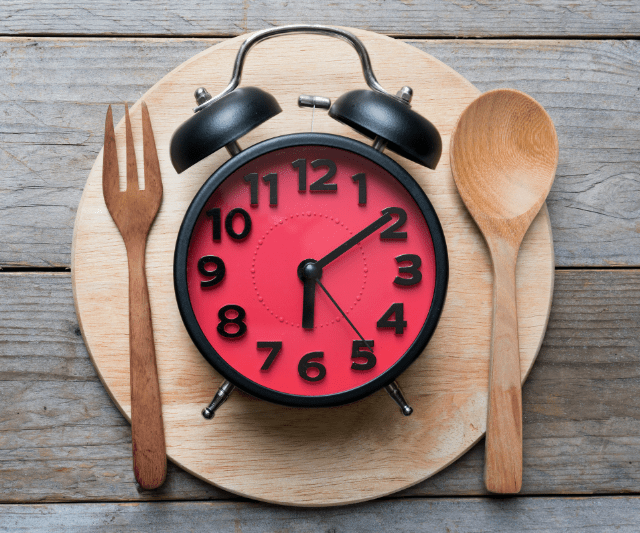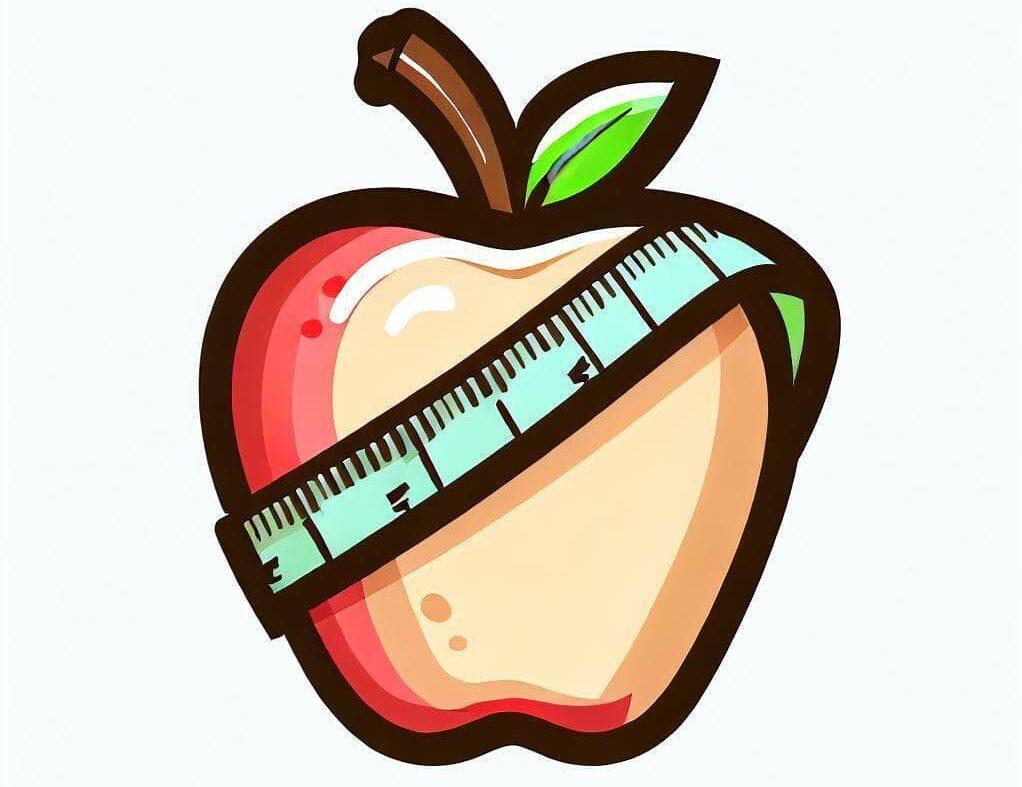Does Meal Timing Matter for Weight Loss?
This post may contain affiliate links which means I may receive a commission for purchases made through links at no extra cost to you. See my disclosure policy for more information.

Yes, the timing of meals does matter for weight loss. It’s generally better to eat more in the morning and less at night.
As a nutritionist, I typically recommend having a larger breakfast and a smaller dinner, ideally eating dinner earlier, around 5 PM.
The reason for this recommendation is that you typically need more energy in the morning for activities like work, school, walking the dog, or going to the gym. In contrast, in the evening, after dinner, most people tend to wind down and relax, perhaps watching TV.
However, it’s important to remember that what you eat and how much you eat are still more important than when you eat.
If you are interesting in exploring this topic more in detail, come follow me in this article.
The Impact Of Each Meal on Weight Loss
Let’s discuss how breakfast, lunch, and dinner can impact your weight loss goals, starting with breakfast:
Breakfast
Breakfast is usually your first meal of the day.
You’ve just woken up from sleeping all night, which means your body is coming out of a fasting state and needs a fresh batch of nutrients to switch from a catabolic state (breaking down) to an anabolic state (building up).
That’s why, as mentioned earlier, it’s good to have a bigger breakfast when you’re on a weight loss diet compared to a big dinner. If you eat breakfast around 8 AM, you have the whole day ahead of you to use those nutrients and calories.
Depending on your lifestyle, you can also choose to time your breakfast more strategically, especially if you’re trying intermittent fasting.
Since you’re trying to lose weight, which means letting your body use stored fat for energy, fasting is a way to help this process.
For example, if you finish dinner at 8 PM and follow a typical 16:8 intermittent fasting schedule, you will have your breakfast at 12 PM the next day.
We call it breakfast because it’s your first meal and you are literally breaking your fast.
From 8 PM the previous night to 12 PM, your body is in fasting mode and relies on stored energy.
You can try intermittent fasting if you like, but it’s not necessary. The main point is that your breakfast should be substantial and try to ensure at least a 12-hour gap from dinner to breakfast to allow your body to use stored energy.
Lunch
The impact of lunch can greatly affect your weight loss. It all depends on how many calories you had for breakfast.
For example, if you are on a caloric deficit diet of 1500 kcal per day and you ate about 700 calories for breakfast, your lunch should be smaller, around 400 calories, so that there is enough room for dinner.
If you have a larger lunch, say 600 calories, you’re likely to go over your calorie limit by dinner.
You could opt to have a big breakfast, skip lunch, and then have dinner. If that doesn’t suit you, you could have something small for lunch to keep your energy up.
This could be a small sandwich or some almonds and a fruit, depending on how big your breakfast was.
Dinner
Having a high-carb dinner can be problematic for weight loss. Carbs are a source of energy, and you need less energy in the evening when you’re settling down to watch Netflix on the sofa.
If you have a high-carb dinner, most of those carbs will get stored as glycogen, and if your glycogen stores are full, they will turn into fat.
Having a high-protein dinner might be more beneficial for weight loss because protein is filling, and it takes more calories for your body to digest protein than it does to digest fat or carbs. This is a win-win for losing weight.
Prefer meals with more protein and fewer carbs at dinner, such as more meat and fewer servings of rice, potatoes, or bread.
Having an earlier dinner gives your body more time to use up whatever you eat and potentially some of that stored energy until you have breakfast. That’s why earlier dinners are better for weight loss.
Also Read: What Role Do Hormones Play in Weight Loss?
When To Eat For Weight Loss?
Here are some pointers to keep in mind:
Make Breakfast or Lunch Your Biggest Meal of the Day
Unless you work a night shift, you’ll need most of your energy from morning until evening, typically from sunrise to sunset.
This is when you’re doing your major activities of the day.
Having a big meal in the morning gives your body more time to use the nutrients you take in. How well your body uses these depends on how active you are.
Opt for a Smaller Lunch or Skip It If You Had a Big Breakfast
This really comes down to what you prefer and what feels right for you. Lunch means different things to different people.
For some, it’s eating from a packed lunch box, and for others, it might be a chance to catch up with co-workers or friends.
The main point is, if you had a big breakfast, your body doesn’t need another large amount of food, so you could choose something smaller like a snack.
If your breakfast was smaller, then you might want a bigger lunch. It all depends on your lifestyle and if you can keep within your calorie limit.
Implement Some Sort of Fasting
Fasting isn’t for everyone and it can be uncomfortable at times. But, I suggest it because you need to burn between 3,500 to 7,700 calories a week to lose weight at a pace of 1-2 pounds (0.5 – 1kg) a week.
If you skip breakfast and go straight to lunch, your body, which is used to getting calories from a fresh meal, will have to start burning calories from stored energy.
By fasting, you create a larger caloric deficit and make your body use stored energy in the form of fat.
I recommend starting with at least 12 hours of fasting, and you could extend this to 16 – 20 hours, depending on what’s comfortable for you.
Eat Your Dinner Earlier in the Day
There are two reasons for this suggestion.
First, if you finish your dinner at 5 PM and go to sleep at 11 PM, and then don’t eat until breakfast at 8 AM the next day, you are creating a longer fasting window without making much effort, since you’ll be sleeping through most of it.
Second, whatever calories you consume at dinner, having it earlier gives your body more time to use them up before you go to bed.
Also Read: How Much Weight Loss Is Good For You?
Conclusion
At the end of the day, the most important thing is to stay within your daily calorie limit without going overboard. The advice about meal timings is aimed at optimizing your diet even further.
However, if you prefer not to have larger meals in the morning and enjoy a larger dinner instead, that’s perfectly okay. Remember, there isn’t just one way to achieve weight loss.
What matters most is finding a sustainable approach that doesn’t make you feel like you’re strictly “dieting.”
FAQ
Does meal timing matter for losing weight?
Yes, meal timing can be important for losing weight. Eating during the day when you’re active helps your body use the energy better.
What is the best time to eat when trying to lose weight?
The best time to eat for weight loss is usually during daylight hours, like morning and early afternoon.
What is the best eating schedule for weight loss?
A good eating schedule could be having meals within a 10-hour window, say from 8 am to 6 pm. This way, you give your body time to digest before sleep and use food for energy when you need it most.
Between what hours should I eat to lose weight?
To lose weight, try to eat between 8 am and 6 pm. This fits with your body’s natural active time, so it can use the food for energy better.
This post may contain affiliate links which means I may receive a commission for purchases made through links at no extra cost to you. See my disclosure policy for more information.
Rahul is a professional nutritionist certified by the International Sports Sciences Association (ISSA) and a personal trainer certified through the American Council of Exercise (ACE). He has a special interest in the science of nutrition and how it can impact the body.
